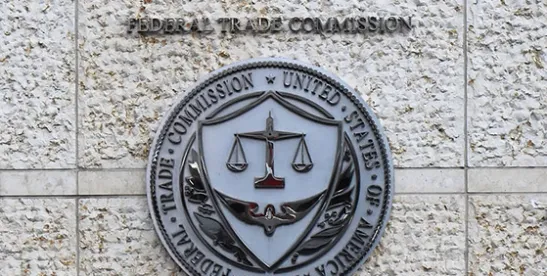On April 23, 2024, a divided Federal Trade Commission (“FTC”) voted to adopt a Final Rule banning most post-employment non-competition obligations with workers, requiring that companies issue notices to workers of the impact of the Final Rule on any non-competition obligations entered into by them.
The FTC’s Final Rule (the text of which begins on page 561 of Non-Compete Clause Final Rule (ftc.gov)) is different from the Proposed Rule the FTC published 15 months ago. The Final Rule still contains a near-complete ban on post-employment non-competes following the Final Rule’s effective date, but it includes some notable, even if imperfect, modifications to the FTC’s original proposal. This alert starts with the “good” news, but, depending on your outlook and pessimism for the Final Rule’s success in the courts, the “bad” news follows.
Let’s start with the “good” news:
- The Final Rule is not effective until 120 days after it is published in the Federal Register, so there is time for companies to continue using and enforcing non-competition obligations through the effective date and time to develop a modified approach for obligations covered by the Final Rule to implement after the effective date.
- The Final Rule will be challenged and litigated through the federal courts because there are significant constitutional issues with the FTC’s approach and its authority even to issue it. Given the U.S. Supreme Court’s hostility to administrative overreach, the Final Rule very well may be enjoined before it is published in the Federal Register in the coming days. The U.S. Chamber of Commerce has already sued the FTC in federal court in Texas to block the rule as unconstitutional and beyond the FTC’s authority.
- For current and former “senior executives,” existing non-competition obligations are not retroactively voided, but they cannot continue to be used following the effective date. (“Senior executive” is defined in the Final Rule and is focused on “officers” and others with “final authority” who earn more than $151,164 per year in total compensation.)
- Causes of action that have already accrued or which accrue prior to the effective date—including existing and soon-to-be-filed lawsuits enforcing non-competition obligations that would otherwise be banned under the Final Rule once it is effective—remain viable and are excluded from the ban under Section 910.3(b).
- The FTC has carved out a species of “garden leave” provisions in the background commentary preceding the Final Rule, unequivocally stating that “an agreement whereby the worker is still employed and receiving the same total annual compensation and benefits on a pro rata basis would not be a non-compete clause under the definition, because such an agreement is not a post-employment restriction” and, “[i]nstead, the worker continues to be employed, even though the worker’s job duties or access to colleagues or the workplace may be significantly or entirely curtailed” (emphasis added).
- The FTC has carved out fixed-duration employment contracts in the background preceding the Final Rule, unequivocally stating that “fixed-duration employment contracts, i.e., contracts between employers and workers whereby a worker agrees to remain employed with an employer for a fixed term and the employer agrees to employ the worker for that period, are not non-compete clauses under the Final Rule because they do not restrain post-employment conduct.”
- In Section 910.3(a) of the Final Rule, the FTC has broadened the exception for non-competition obligations used with worker equityholders in the context of the sale of businesses, and notably (but with significant practical limitations) other sales of workers’ ownership interests, and the FTC jettisoned the arbitrary 25 percent ownership threshold it had previously proposed.
- The Final Rule does not apply to business-to-business non-competes or sale-based non-competes with sellers or seller-related parties who are not workers, and it remains, given the current scope of the underlying FTC Act, inapplicable to certain industries, including financial institutions (banks and savings and loan companies), non-profits (including non-profit healthcare companies), and common carriers (transportation and communications).
- There is a safe harbor in Section 910.3(c) for those who, following the effective date, enforce or attempt to enforce a non-competition obligation the person has a “good-faith basis” to believe is not banned by the Final Rule.
Now, for the “bad” news:
- If the Final Rule survives legal challenges and becomes effective: (i) all existing non-competition obligations for workers other than those defined as “senior executives” will be retroactively void and cannot be enforced; and (ii) going forward, all non-competition obligations entered into with workers after the effective date are banned, including those workers encompassed within the definition of “senior executives.”
- If the Final Rule survives legal challenges and becomes effective, non-competition obligations agreed to by employees or other service providers in exchange for equity rights and awards (whether contained within awards, plans, or governance documents) and even in the context of redemptions of equity (something even California statutorily permits) are encompassed by the Final Rule, as the background commentary preceding it confirms. Although not clear from the text of the Final Rule itself, the FTC has explicitly stated that “[t]he Commission declines to specify that a ‘worker’ includes an owner who provides services to or for the benefit of their business because the definition already encompasses the same.” And the FTC makes clear in its commentary (even if not in the Final Rule’s text) that common redemption-based and springing non-competes with worker equityholders are banned: “So-called ‘springing’ non-competes and non-competes arising out of repurchase rights or mandatory stock redemption programs are not entered into pursuant to a bona fide sale because, in each case, the worker has no good will that they are exchanging for the non-compete or knowledge of or ability to negotiate the terms or conditions of the sale at the time of contracting.” What wiggle room that leaves is unclear.
- The FTC was not persuaded by the strong and vociferous public commentary it received about the windfall that a large swath of workers who had been provided long-term incentives, equity, or substantial severance in exchange for non-competition obligations will receive if their non-competition obligations are voided and, in essence, rescinded, even though they were likely bargained-for with the employee’s full knowledge of the non-competition obligations. As explained in the background commentary preceding the Final Rule, “[t]he Commission shares these concerns about the practicalities of untangling non-competes that are more likely to have been bargained for,” but the only exemption the Final Rule provides is for existing agreements with “senior executives.” It remains to be seen whether companies will have a path to exact true rescission if the Final Rule becomes effective, but the FTC seems to acknowledge the potential for such suits against workers.
- Regardless of whether the Final Rule survives legal challenges, there is bound to be a feeding frenzy over the next few months as companies battle for talent at levels below “senior executives,” and lateral hires currently in the recruiting queue are likely to attempt to re-negotiate employment terms that included a non-competition obligation. Companies planning to include severance and equity awards may also reconsider whether to do so until it is clear whether the Final Rule will survive and become effective.
- Although the Final Rule does not explicitly ban “de facto” non-competition obligations or explicitly indicate that non-solicitation or confidentiality and non-disclosure obligations are within its scope, the Final Rule expressly applies to any “term or condition of employment that . . . functions to prevent a worker from . . . seeking or accepting employment . . . or . . . operating a business”, which the FTC notes in the commentary preceding the Final Rule addresses case law that has held that overbroad non-disclosure and non-solicitation agreements may “raise the same policy concerns about restraining competition as noncompete clauses” and prevent mobility.
Companies that are intent on enforcing non-competition obligations and that are not excluded from the scope of the FTC Act will need to consider their practices in the coming days as the legal challenges unfold in the courts. They also should consider new approaches, including those now blessed by the FTC in the Final Rule or the commentary preceding it: (i) using a form of garden leave that keeps employees on payroll with all benefits; (ii) potentially using equity-based covenants triggered by the redemption of workers’ vested equity interests but subject to a negotiated valuation and buyout (as opposed to a mandatory procedure not subject to negotiation); or (iii) using fixed-duration or term-of-service contracts. In short, non-competition obligations may well be permitted if they are paid for financially in those contexts, but the promises to provide at-will employment, access to confidential information, customer relationships, goodwill, training, or long-term incentives, equity, and severance are no longer enough, according to the FTC.
Aware of the headwinds it will face in the courts, the FTC has included a “severability” provision in Section 910.5 of the Final Rule that purports to limit legal challenges to the particular context and case in which the dispute arises and to try to limit any challenge’s impact on other provisions of the Final Rule. It is hard to conceive that this self-serving provision will restrain the inclination, let alone authority, of the courts to interpret the FTC’s authority to issue the Final Rule in the first place and the constitutionality of its actions. If anything, it highlights the FTC’s audacity.
While we await the outcome of the legal challenges to the FTC’s Final Rule, it remains important, in light of all of the recent legislative and administrative efforts, to curtail the use and enforcement of non-competition and non-solicitation obligations to ensure companies are appropriately using and tailoring these restrictions in accordance with their legitimate business needs and applicable state laws. We will continue to monitor the developments of the FTC’s Final Rule as it is challenged and litigated, and its effect on businesses and recruitment throughout the United States.




 />i
/>i
